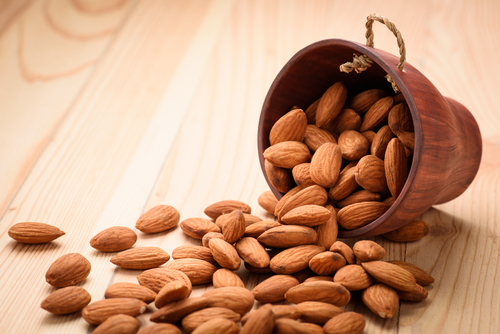Protein is one of the most misunderstood nutrients on the planet. While we all know it’s essential for building muscle, skin, organs and hormones, many people are confused about how much protein they should be eating.
Most people eat more protein in a day than their bodies actually need, as much as three to five times what is recommended. Individuals over the age of 18 only require that 10% to 30% of their daily calories come from protein. Excess dietary protein can pose serious health risks such as kidney stress, elevated blood sugar, and the leeching of bone minerals.
The second area of confusion when it comes to protein is what are the best sources of it. When they hear the word protein, many people instantly think of animal sources like turkey and beef. And while some lean meats are definitely a great source, there are also plant-based options that offer complete proteins the body can use efficiently. Remember, some of the biggest animals on the planet, like gorillas and elephants, eat an entirely plant-based diet. You gotta admit, they’re pretty strong and powerful.
If you want to give your body the proper building blocks, consider choosing from the following 7 protein sources:
Fish
When it comes to animal sources of protein it really doesn’t get much better than fish. Varieties like halibut, salmon, tilapia and mackerel provide 7 grams of protein per ounce, plus all of the essential amino acids your body needs. As an added bonus, cold water fish like tuna, salmon and sardines also provides essential omega-3 fatty acid that supports joint health and support an anti-inflammatory diet.
[Editor’s note: If you’d like to ensure you’re getting enough omega-3 in your diet, but hate the taste of fish or don’t know which is best for you… I’d recommend DuOmega, it provides the highest forms of omega-3 and 7 for joint and heart health. Try it for yourself – Click Here.]
Eggs
We can all breathe a sigh of relief because we have finally been given the greenlight to eat eggs. And not just the whites, but yolks and all! One egg contains 7 grams of protein and all of the essential amino acids. And that yolk that we were told is unhealthy actually contains importantvitamins and minerals, such as vitamin A, vitamin B12, riboflavin and folate, as well as healthy cholesterol your body needs.
Dairy
Milk does indeed do your body good. It contains all nine essential amino acids, those all-important building blocks, as well as eight grams of protein per serving. Fortified milk also offers many necessary vitamins and minerals like vitamin D, calcium, and potassium. And, with whole, low-fat and skim options available, you can ensure you get the nutrients you need while controlling your fat and caloric intake.
Raw Nuts and Seeds
Sources like hemp seeds, chia seeds, almonds and Brazil nuts are protein powerhouses. Just one cup of almonds, for instance, contains a whopping 20 grams of protein. On top of this, these sources also provide a rich array of vitamins, minerals, fiber and healthy fats. A word of caution, though: while the fats are healthy, they’re still fats, which contain a lot of calories, so use your head and eat in moderation.
Sprouted Grains
When you sprout grains like oats, millet, quinoa and buckwheat, you activate their nutrients. These grains are a source of not only high-quality and easily digested proteins, but also dietary fiber. Most American diets are very lacking in fiber, which is not only effective in keeping the digestive tract healthy, but also in lowering blood pressure.
Quinoa and buckwheat also provide antioxidants to support the immune system and fight the signs of aging. And, beyond this, a 100 gram serving of quinoa has less than half the fat of a similar serving of lean beef but offers a cleaner burning protein.
Legumes
Beans and legumes are a great source of protein as well as fiber, calcium and iron. Sadly, many people avoid eating beans because of the gas that often follows. It’s true, beans are a bit hard for some bodies to digest and can cause gas, but that shouldn’t scare you away from this excellent protein source. Soaking beans overnight can help their digestibility, and taking digestive enzymes before your meal will also help.
Spirulina
You may be scratching your head right now wondering, “What the heck is spirulina?” While it’s often misclassified as an herb, it’s actually a bacteria, or more specifically, a blue-green algae found in rivers, ponds and pristine fresh water lakes. It is commonly referred to as a superfood because it contains 60% protein by weight and all of the essential amino acids needed by every organ in the body.
Athletes often turn to spirulina to support their body. In one study, spirulina was found to enhance endurance and significantly increased the amount of time it took for participants to become fatigued. Another study performed on college athletes found supplementing with spirulina increased their muscle strength. Also, some plant foods, spirulina being one of them, contain powerful antioxidants that minimize damage after intense workouts.
Admittedly, spirulina is an acquired taste, and some people do not like its vivid green color. Luckily there are spirulina protein powders on the market that come in a variety of flavors so you can take advantage of the health benefits in a delicious way.
Getting the right amount of protein in your diet is essential for optimal health. Just be sure not to overdo it, and look to sources other than animal sources.
 Validating...
Validating... 






Leave a Reply